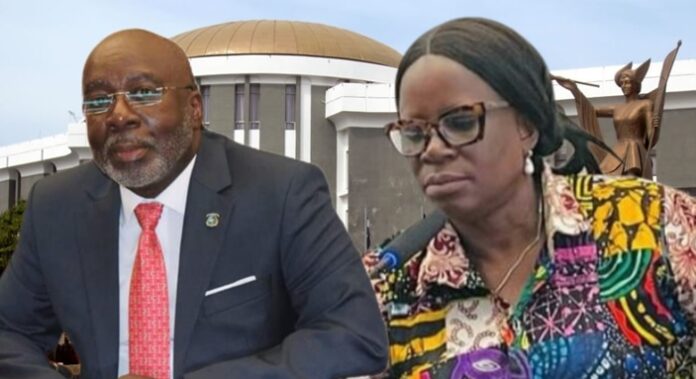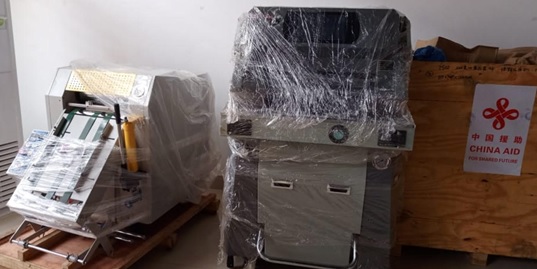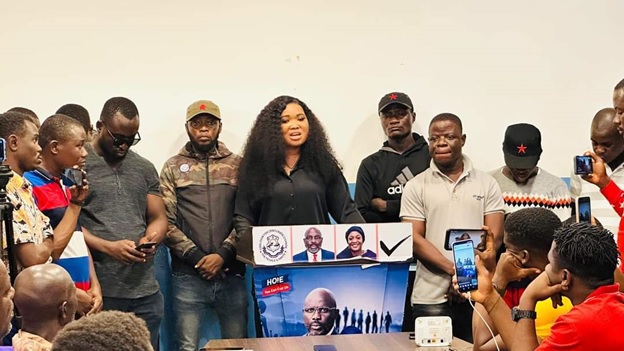MONROVIA – Liberia faces ongoing economic challenges, and the actions of the legislators only seem to exacerbate the situation. Despite the hope that citizens placed in their elected lawmakers, who they supported through rain and shine, economic stability remains elusive. Instead, members of the Liberian Senate and House of Representatives, including those who profess integrity, transparency, and accountability, are receiving substantial benefits that raise serious ethical questions.
Notable figures such as Senator Amara Konneh of Gbarpolu County and Senator Abraham Darius Dillon of Montserrado County, who claim to be the voice of the voiceless, along with Pro Tempore Nyonblee Karnga-Lawrence, are among those benefiting from these generous allocations. Martin Kollie, a vocal civil society advocate, highlighted the excessive benefits senators receive: $45,000 for a car every three years (amounting to $135,000 over nine years), $3,000 for gas monthly, $10,000 for constituency visits, $75,000 for food, $583,500 for committee activities, and $275,000 for retreats. This excessive spending by just 30 senators contrasts sharply with the plight of millions of impoverished Liberians.
Eddie D. Jarwolo, Executive Director of NAYMOTE-LIBERIA, also criticized the lavish financial allocations to lawmakers. He pointed out that $75,000 for ID cards, $45,000 for vehicles every three years, $10,000 annually for constituency visits, $3,000 monthly for gasoline, and $275,000 for Senate retreats are allocated to just 103 lawmakers. Meanwhile, essential sectors like security, civil service, and the University of Liberia are severely underfunded.
Jarwolo emphasized that the core purpose of government is to serve the interests of society, not just a select few officials. The frequent media disclosures of these financial matters without accompanying performance reports from the legislature fuel public frustration and could lead to civil unrest. People are hungry, frustrated, and feel abandoned.
Under Speaker Fonati Koffa’s leadership, the House’s Chairperson on Rule and Order, Rep. J. Melvin Cole, reportedly spent $75,000 just to process identification cards for staffers of the legislature, a situation that led a member of that body, Rep. James Kolleh, to voice his disbelief, terming it as corruption.
Public outrage is also palpable on social media. Comments from citizens express disbelief and disappointment in the lawmakers’ self-serving actions. Alex Jones questioned the continued support for such lawmakers, while Philip T. Kollie lamented the misuse of public funds. Yekeh Kolubah and Thomas A Tamba Page II criticized the legislators for prioritizing their interests over the needs of ordinary people. Anderson Keah and Elijah Barnard pointed to systemic corruption and called for transparency and reform. Duke Samid even suggested abolishing the House and establishing a gender-balanced judicial committee to make laws, emphasizing the need for structural change.
Nilton Meakemie called for reducing unnecessary expenditures and reallocating funds to healthcare services, while Lamie Fahnbulleh highlighted the absurdity of lawmakers driving expensive vehicles on poorly maintained roads.
The public’s frustration with legislative greed is growing, and there is a pressing need for reform in public financial management. While current lawmakers may not be solely responsible for these wasteful expenditures, the continuation of such practices is unacceptable. A referendum to establish a standard salary and benefits for lawmakers could be a step forward, but it requires action beyond social media outrage.
As Liberia struggles with its economic challenges, the government’s responsibility to serve the people, rather than enrich a few, becomes increasingly urgent. The call for change is loud and clear, and the time for legislative accountability and reform is now.
Moreover, the impact of this legislative greed on Liberia’s international reputation cannot be overstated. Investors and international donors are wary of engaging with a country where government officials prioritize personal gain over national development. This perception not only hinders potential investment but also reduces the effectiveness of aid meant to improve living conditions for ordinary Liberians. Transparency and fiscal responsibility are crucial for rebuilding trust and attracting the support needed to foster economic growth.
Additionally, the moral responsibility of lawmakers extends beyond their legislative duties. They should lead by example, demonstrating integrity and accountability. The current state of affairs, where lawmakers indulge in extravagant benefits while the majority of citizens struggle to afford basic necessities, is a stark betrayal of public trust. It is imperative that legislators reassess their priorities and align their actions with the needs of the people they are elected to serve. Reducing unnecessary expenditures and reallocating resources towards essential services like healthcare, education, and infrastructure would be a meaningful start toward restoring faith in Liberia’s governance.







